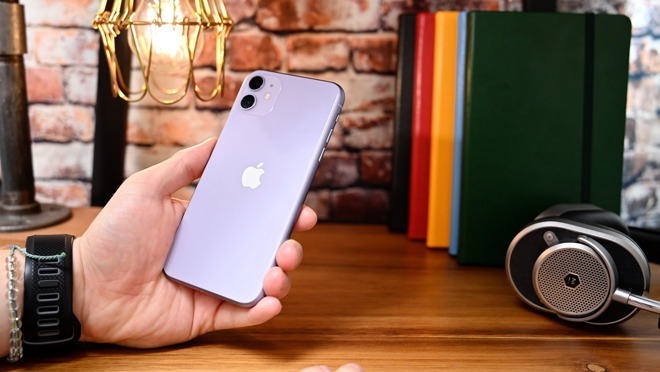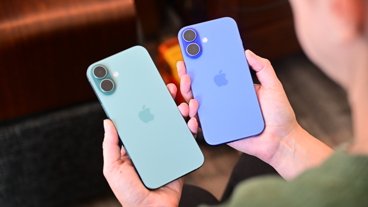Digital camera specialist DxOMark on Thursday released a comprehensive review of the front-facing selfie camera on Apple's iPhone 11, finding the device to offer good, if not great, performance compared to competing smartphones.
Calling it the "junior partner" to iPhone 11 Pro and 11 Pro Max, DxOMark in its review notes iPhone 11 shares selfie camera specifications with its more expensive siblings. On paper, both iPhone lines should yield identical results, as both boast a 12 megapixel sensor, 23mm-equivalent focal length lens and support for advanced photo processing features like Portrait Mode and Smart HDR.
According to DxOMark, the iPhone 11's fixed-focus lens is its Achilles heel.
While exposure, white balance and color reproduction are generally good, save for expectedly mediocre performance in low-light situations, DxOMark found focus to be a consistently weak point for the handset. Interestingly, iPhone 11 was outperformed by iPhone 11 Pro Max in various focus tests, including still photography and video, with subjects becoming noticeably out of focus the farther they move away from the camera.
The group did not offer an explanation for the apparent disparity between iPhone 11 and 11 Pro Max, though it did note Samsung's Galaxy S10+ outperformed both iPhones thanks to an autofocus system. Samsung's model also trumped iPhone 11 in simulated bokeh shots, marketed by Apple as Portrait Mode photography.
DxOMark found iPhone 11 to deliver "nice" color, accurate exposure and high detail, especially when photographing brightly-lit outdoor scenes. The sensor was somewhat noisy in all conditions, however, and suffered loss of detail in certain situations.
Overall, iPhone 11's selfie camera achieved a score of 91 points, putting it in 13th place behind top-performer Huawei, a slew of Samsung smartphones, Asus' ZenFone 6, iPhone 11 Pro Max and Google Pixel 3 and Pixel 4.
DxOMark published an in-depth evaluation of iPhone 11's rear-facing cameras in January.
 AppleInsider Staff
AppleInsider Staff








 Christine McKee
Christine McKee
 Charles Martin
Charles Martin
 Mike Wuerthele
Mike Wuerthele
 Marko Zivkovic
Marko Zivkovic
 Malcolm Owen
Malcolm Owen


 William Gallagher
William Gallagher


-m.jpg)






17 Comments
No one cared about this company until Google referenced them and oddly stopped doing so after they put Pixel iKnockoffs at the bottom. We shouldn't have cared then and we shouldn't care now. Photographers are still using iPhones and companies are broadcasting from iPhone.
Not to be too dismissive of the iPhone 11’s failure to rank in the top 10 (which is disappointing), I must say that my iPhone 8’s front cam does an adequate job of rendering colleagues working from home that have poor lighting and obviously worse internet in all their lack-of-makeup-wearing glory!
So, for FaceTime, if an iPhone 8 can show everyone’s... uh... home face, then I sure don’t need a better front camera. I need a makeup filter for incoming video.
The selfie camera has never been the best camera on an iPhone, but it is an extremely popular one because it does a great job. DxO have been a bit flakey on their decisions for a couple of years now, but I've always put it down to their "focus" (heh) on 1) the actual camera part, kind of ignoring the post-processing, and 2) focusing on the technical and ignoring the real-world results (see also point 1).
I don't doubt that some other company out there has put more emphasis than Apple on the front-facing camera, and might be genuinely better for selfies -- but as we've seen with innumerable cameras that offer more megapixels or more zoom or more something-else, that doesn't make it the "best" camera overall (and sometimes not even in the area of the feature they promote as the leading thing about their camera).
People still take selfies? Am I the only one that never has...?
The camera on the other side of the phone is the one that matters and if it’s not class leading, it’s close.